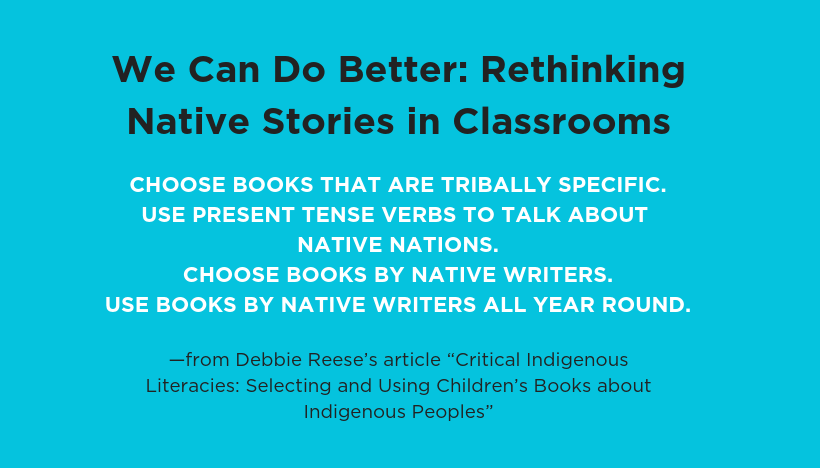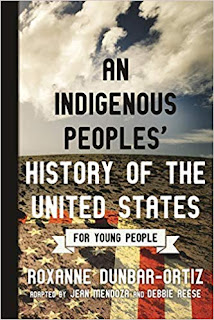Challenges to An Indigenous Peoples' History of the United States, for Young People
Last year, we learned about a letter by Matt Krause, Chair of the Texas House of Representatives Committee on General Investigating, to superintendents of schools in Texas. On October 25, 2021, Krause wrote that several Texas school districts had removed books from libraries and/or classrooms after receiving objections from students, parents, and taxpayers. His letter included a list of 850 books. He wanted to know how many copies of each book school libraries and classrooms have, the source of funds for their purchase, and any other books that
address or contain the following topics: human sexuality, sexually transmitted diseases, or human immunodeficiency virus (HIV) or acquired immune deficiency syndrome (AIDS), sexually implicit images, graphic presentations of sexual behavior that is in violation of the law, or contain material that might make students feel discomfort, guilt, anguish, or any other form of psychological distress because of their race or sex or convey that a student, by virtue of their race or sex, is inherently racist, sexist, or oppressive, whether consciously or unconsciously.
Near the bottom of page two of his 18-page-list, we saw An Indigenous Peoples' History of the United States for Young People:
As many have said, Native children have felt discomfort over books they've been asked to read. There are far more books with stereotypical, biased, and just plain erroneous Native content than there are ones that accurately reflect Native nations, cultures, and people. As many have pointed out, most of the books on the Krause list are ones with LGBTQ+ content. See, for example, the analysis done by Danika Ellis at Book Riot.
****
On February 19, 2022, we learned that Paul and Rachel Elliott, parents of an elementary-school student at McKinney Independent School District in north Texas, had submitted a list of books that they believe should be removed from the school curriculum. An Indigenous Peoples' History of the United States for Young People is on their list. Their challenge to it is on page 99-100 of the pdf of books they are challenging (note on May 1, 2022: the original link is gone. I replaced it with a link to the Internet Archive).
We talked about the challenges with Edith Campbell at her blog, Cotton Quilts, on January 30:
And, Debbie talked with author Margarita Engle in February. That conversation was published at PEN AMERICA on February 11:
When someone issues an objection to a book, it is a challenged book. When the book is removed, it is a banned book. Has your library removed our book from your shelves? How does the catalog for the book look, post-removal?
I read a letter by author Bill Konigsberg this morning and urge you to read and share it. Jean and I are working on a response (perhaps an open letter) to the challenge at McKinney Independent School District.
We are considering Dr. Rudine Sims Bishop's metaphor, Mirrors, Windows, and Sliding Glass Doors as a way to describe what we see happening. An Indigenous Peoples' History of the United States for Young People functions as a mirror for Native kids because it provides them with Native points of view that reflect the integrity with which their ancestors fought to protect Native Nations, homelands, people, and ways of being. We do not glorify American history and we tell the truth, for example, about U.S. presidents. I expect that our book is being characterized as "anti-American." Our book functions as a window for non-Native kids because it provides them with knowledge they may not have had access to, before reading our book. The third component of Bishop's metaphor is a sliding glass door. Books are also sliding glass doors, she wrote, because "readers have only to walk through in imagination to become part of whatever world has been created or recreated by the author." I suspect parents who are challenging our book do not want children to develop empathy for Native people and concerns. We'll have more to say, later.
In the meantime, if you know of a challenge to our book, please let us know.














